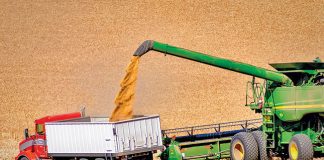“Farm workers need continual upskilling and training in simple skills such as welding and tractor driving. There should be a national programme of skilling unskilled labour. Individual farmers who do so stand out in terms of productivity,” explains Venter. The Agricultural-Sector Education Training Authority (Agri-SETA) was convened in 2005 to co-ordinate skills development in the sector.
It falls under the Department of Higher Education and Training (DHET) and has about 90 registered learnerships to address skills needs. However, standards do not match industry requirements, and quality standards differ between private providers. As a result, many learners are not employable. Agri-SETA’s Quality Council for Trades and Occupations (QCTO) was launched in response to this, and it is now responsible for establishing and maintaining occupational standards and qualifications in the workplace.
In addition, QCTO seeks to forge closer ties with industry bodies to develop the skills each industry requires, explains project manager Onicca Moloto. According to Moloto, projects involving the following organisations have already been completed:
- The SA National Seed Organisation – to develop qualifications such as seed analyst and seed inspector;
- The Grain Silo Industry Association – grain handling operators, grain graders and grain handling controllers;
- The Livestock Health and Production Group – livestock farm supervisors;
- The Milk Producers’ Organisation – dairy farm managers;
- Fruit SA – horticultural farm production managers.
The South African Poultry Association (SAPA) has forged a particularly strong working relationship with Agri-SETA, and is represented on the SETA board and on Agri-SETA’s poultry sub-sector committee. In 2012, Agri-SETA contributed R620 000 to the development of three QCTO occupational qualifications for the poultry industry: poultry farmhand, supervisor and manager. At the same time, R480 000 went to funding the training of 71 poultry meat examiners and a further R480 000 was used to co-fund hatchery internships for the Chick Producers’ Organisation.
Progress in milling industry
Agri-SETA is now engaging the National Chamber of Milling (NCM) to develop training modules and occupational qualifications that will fulfil the skills needs of the milling industry. “A lot of progress has been made with Agri-SETA,” says NCM acting executive director Boikanyo Mokgatle. “Within a month, we’ll be having a stakeholder engagement workshop to get more input from millers as to what skills they think should be entrenched in the courses.
Mokgatle believes the new approach by Agri-SETA will help fill skills gaps in the sector. “Agriculture is a multi-dimensional field and I think this is the right route to go – tailor-making each particular field to ensure the needs of each sector are satisfactorily addressed,” he says. Chris Mason, SAPA Training and Development Manager, says that although Agri-SETA is keen to see results, it is hampered by a shortage of resources, which, in turn, is indicative of the overwhelming training needs in the sector.
One of the biggest problems faced by Agri-SETA is accessing money from the National Skills Fund (NSF), he explains.
“About 20% of the Skills Levy goes to the NSF. Government needs to step up to allocate funds from the NSF to priority areas,” he says. In his May 2013 budget vote speech, DHET minister Blade Nzimande said the DHET’s Skills Levy, which is channelled through the SETAs and the NSF, is expected to increase by 9,1% annually over three years from R11,4 billion in 2012/2013 to R14,8 billion in 2015/2016.
“One of our priorities is linking the education and training institutions and the labour market,” he said. “This is because workplace training is generally more effective if on-the-job training is combined with theoretical study and also because practical experience during training – or in some cases immediately afterwards – increases a student’s chances of finding employment.”
Venter says it’s good news that the Agri-SETAs are getting off the ground. “There’s a lot of goodwill in organised agriculture and in the agriculture industrial sector. South Africa urgently needs to lift productivity. We’re falling behind in terms of global competitiveness,” he stresses.












